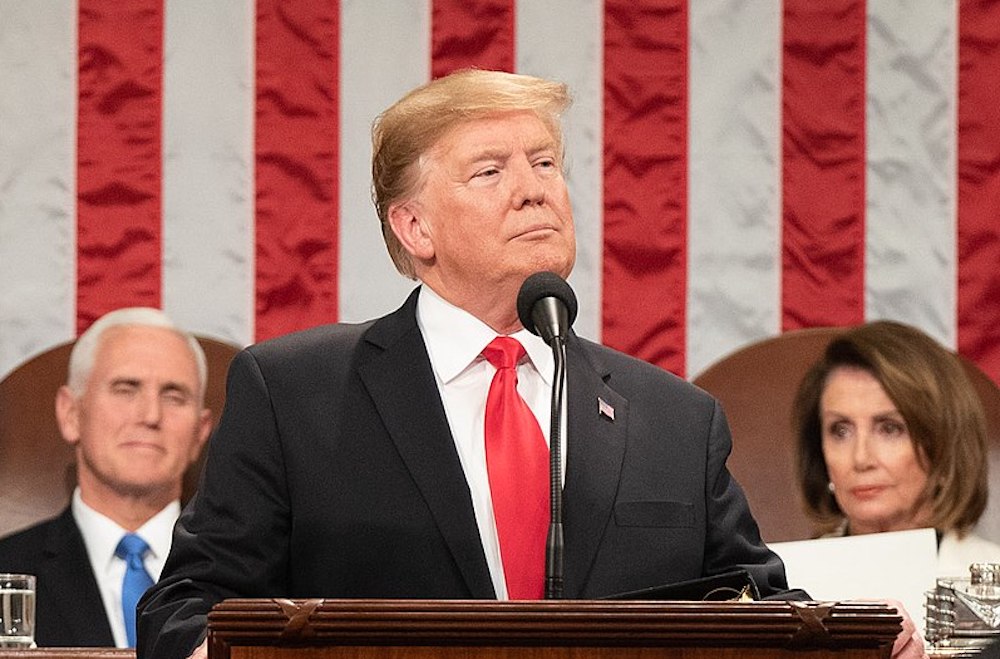It’s starting to feel like spring, the days are longer, and the deficit hawks, apparently, have all flown north for the summer.
As a result, nowadays, the hawks’ angry shrieks are seldom heard in Washington!
“The federal budget deficit is ballooning on President Trump’s watch and few in Washington seem to care,” the Associated Press reported on March 2, the news service’s reporter not even trying to hide his sense of wonderment at this turn of events.
To the reporter’s credit, he was actually able to drum up a Washington deficit hawk shocked and appalled enough about this development to spend a few moments complaining before flocking off to wherever Republican Senators go on a weekend.
Here in Alberta, meanwhile, with an election looming, the unpleasant cacophony of the deficit hawks is almost deafening.
If the silence of the hawks in Washington is perplexing, the fact our Canadian Republican types — called conservatives on this side of the 49th Parallel owing to the fact Our Dominion is not a republic — are singing a different song is also unusual.
There was a day when conservative political messaging was quite different in Canada than the United States, reflecting real cultural and historical differences between our countries. This remains the case on the left to a significant degree.
But over the past 40 years or so, there has been a significant effort on the right to forge an international ideological consensus through promotion of institutions such as the worldwide network of utopian market fundamentalist think tanks and astro turf groups, many funded by Washington-based organizations like the Atlas Network.
Our former prime minister, Stephen Harper, plays a prominent role in this effort, and now heads the market fundamentalist Internationale based in Munich, Germany. This organization is called the International Democrat Union and, while it is certainly international, is only a union in the sense of, say, the Soviet Union, and its commitment to democratic principles is open to question.
Nevertheless, this approach has proved remarkably effective at creating a consistent international economic ideology on the right — which nowadays encompasses pretty well all the parties of the right, everywhere, plus some in the middle, even a few supposedly on the left.
Calling this doctrine neoliberalism may seem counterintuitive, as it’s neither new nor liberal, at least in the modern understanding of the latter term. But despite its flaws, it is probably the most precise term for this pervasive and pernicious ideology.
It must be observed that this ideological consistency is remarkably reminiscent of the now-moribund Communist movement of yore. If you read the musings of the admirers of Vladimir Lenin in this right-wing movement, people like the slovenly former Trump administration chief ideologist Stephen K. Bannon, you will see this is quite intentional.
This is so striking, indeed, that one almost expects Harper to start numbering the IDU’s regular clambakes, starting with “the First Internationale,” or some such.
A key part of this consistent messaging is a supposed horror of deficits, which is universal and all encompassing on the political right … except when it’s not.
So if there is such a consensus on the right, how do we explain this remarkable divergence in the key talking points of the members of this international movement in Canada, especially Alberta, and in Washington?
The expiation is quite simple. It has been elucidated by a Nobel Prize winning economist, no less — although one, it must be admitted, whose views are not wholly in tune with the prevailing neoliberal ideological doctrine.
“Republicans spent the entire Obama administration inveighing constantly about the dangers of debt, warning that America faced a looming crisis unless deficits were drastically reduced,” Paul Krugman wrote in his New York Times column soon after President Donald Trump’s inconveniently delayed February 5 State of the Union message.
Any Canadian who is paying attention knows that the situation is exactly the same on this side of the border.
“Now that they’re in power, however,” Krugman continued, “and with the deficit surging thanks to a huge tax cut for corporations and the rich — they’ve totally dropped the subject.”
He quoted one of Trump’s senior officials on why the topic never came up in the SOTU: “Nobody cares.”
“Republicans never actually cared about debt,” Krugman explained. “They just pretended to be deficit hawks as a way to hamstring President Obama’s agenda.”
The obsession “never had much basis in economic analysis,” he added. “Republicans rail against budget deficits when they’re out of power, then drop all concerns and send the deficit soaring once they are in a position to cut taxes. Then when it’s the Democrats’ turn, they’re expected to clean up the Republicans’ red ink rather than address their own priorities.”
This is what happened when Liberals and New Democrats won elections in Ottawa and Edmonton. Suddenly, deficits mattered again. It foretells exactly what will happen if Andrew Scheer or Jason Kenney come to power in the federal and Alberta elections expected soon. This is not just a pattern. It’s a strategy.
In Alberta, if Kenney manages to hang onto his party’s current substantial polling lead, our deficit will soar to unprecedented levels as a result of his planned program of tax cuts.
Of course, it will also become a convenient excuse to lay waste to public health care, education and the other valuable public social programs neoliberal ideology despises, but what commentary there is about the size of the debt and deficit will be shuffled off on the NDP or the Liberals.
As for the impact of cutting taxes on deficits and debt, all the usual suspects will fall strangely silent, just as they have in Washington. Screech? The deficit hawks won’t even tweet!
It is written.
This post also appears on David Climenhaga’s blog, AlbertaPolitics.ca.
Help make rabble sustainable. Please consider supporting our work with a monthly donation. Support rabble.ca today for as little as $1 per month!





